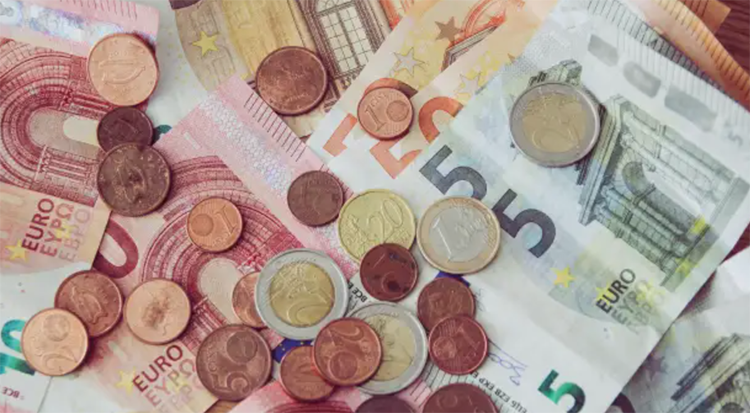
The euro fell against the dollar as investors were increasingly anxious about energy supply and the possibility of a regional recession.
For the first time since 2017, the euro fell below $1.06. It was over 0.9% down at $1.054 at the time of writing. The dollar has risen in recent weeks due to its safe-haven allure, as speculators anticipate a slowing or possibly recession in the economy.
“The euro is unmistakably approaching parity. Weak economic forecasts for the eurozone and big discrepancies in monetary policy reactions in the US and the eurozone are the reasons for this weakness,” Carsten Brzeski, chief economist at ING Germany, told CNBC via email.
The market changes came after Gazprom, Russia’s state-owned energy company, vowed to cease natural gas deliveries to Poland and Bulgaria, two European Union members, in exchange for ruble payments. Following Russia’s aggressive invasion of Ukraine on February 24, tensions between Moscow and the West have continued to grow.
“Russia’s decision to stop gas supplies to Poland and Bulgaria has exacerbated the downturn, putting us one step closer to the same thing happening for euro area countries,” George Buckley, Nomura’s chief U.K. and euro area economist, told CNBC.
Learn how to trade crypto, Forex, CFDs, and other instruments in the United Kingdom, Germany or France with regulated brokers
President of the European Commission Ursula von der Leyen accused Russia of blackmailing the EU over its decision to cut supply on Wednesday. The EU is heavily reliant on Russian gas, accounting for roughly 40% of its imports, and there are broader fears about the region’s economy slowing further.
“Higher energy prices combined with a considerably lower currency will contribute to near-term inflation, albeit this increases the possibility of a cost-of-living-related slowdown in the future,” Buckley said.
The decision by Gazprom is “a disturbing indicator,” according to James von Moltke, chief financial officer of Deutsche Bank, who spoke to CNBC on Wednesday. “I don’t believe it will have an immediate economic impact… “However, it continues to pose a risk to the overall outlook,” he warned.
The International Monetary Fund predicted earlier this month that the eurozone will grow at a rate of 2.8% this year. This is a drop of more than 1% from a previous forecast given before Russia invaded Ukraine.
“Rising global energy costs and energy security are the key channels via which the war in Ukraine and sanctions against Russia influence the euro area economy.” Because most European nations are net energy importers, increased world prices result in a negative terms-of-trade shock, resulting in lower output and greater inflation, according to the IMF at the time.
The European Union’s reliance on Russian energy is undoubtedly a source of economic concern. The EU has already voted to halt Russian coal imports and is considering prohibiting oil shipments. Natural gas, on the other hand, is the product that the EU imports the most from Russia, and investors are paying close attention to it.
When asked if Russia’s oil and natural gas sanctions pose an economic risk for Europe, UBS CEO Ralph Hamers said, “Of Russian oil, not so much, of Russian gas, that’s a different — a much bigger challenge, and that’s really because large parts[s] of industries are dependent on gas as their base commodity to make their product… so that’s what could cause the second order effect, specifically in the European economy.”
Subscribe for our newsletter
Get Forex brokers reviews, market insights, expert analytics and education material right into your inbox for free!